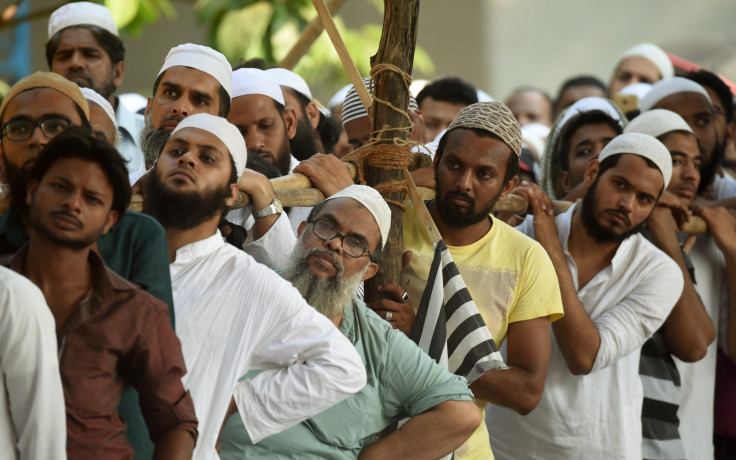Top Muslim cleric in India bans women watching football as they will look 'only at players' thighs'
The fatwa has been issued by an Islamic cleric in India's north Indian state of Uttar Pradesh.

A top Muslim cleric in India has issued a fatwa against women watching football because he felt that they would not concentrate on the game but only on the "players' bare thighs".
Mufti Athar Kasmi, a senior Islamic voice representing Asia's largest Muslim seminary Dar-ul-Uloom Deoband, issued the decree ordering Muslim men not to allow their wives even to watch football on television sets.
"Do you have no shame? Do you not fear God? You let her watch these kinds of things," he asked during a routine sermon, according to local media reports. "Why do women need to watch these football matches? What will they gain by looking at footballers' thighs? Their attention will be on that only and they will even miss the scores," he said. He added that women should not even look at men.
The influential religious body, headquartered in the northern Indian state of Uttar Pradesh, is known for issuing harsh fatwas in line with hardline Islam. In the past, the 150-year-old organisation issued a fatwa banning Muslim women from tweaking or trimming their eyebrows calling the action "un-Islamic".
Among the 1.25 billion population in India, roughly 13% are thought to be Muslims and Uttar Pradesh, the country's most populous state, has more than 38 million Muslims. Though fatwas such as the one issued by Kasmi would not stand legal scrutiny under the country's constitution, other initiatives by Islamic religious bodies tend to have an impact on the Muslim community in the country.
The fatwa also comes on the heels of the government's efforts to criminalise the practice of triple talaq, or instant divorce, through which many Muslim men separate from their wives. The issue of triple talaq – in which a Muslim husband utters the word talaq three times to divorce his wife or wives – has been at the centre of a political and religious controversy for several years in India.






















